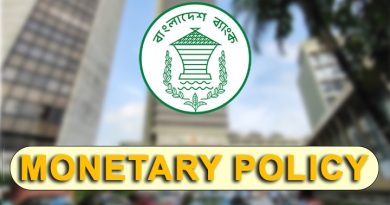In a world marked by uncertainty, competition, and rapid change, trust remains one of the most powerful yet fragile forces that hold humanity together. Whether in global relations, business networks, social development, or family circles, trust functions as the invisible loop that binds people toward shared goals. When trust weakens, the entire structure of communities and institutions begins to collapse.
Spiritually, trust has been deeply rooted in human consciousness since creation. In Islam, ‘Tawakkul’ the act of placing trust in Almighty Allah while performing one’s responsibilities, symbolizes the highest form of faith. It reflects balance: a reliance not on blind optimism, but on ethical action guided by divine confidence. This spiritual truth mirrors the modern need for trust in all human interactions, trusting one another’s intentions while remaining accountable for our actions.
Within families, trust nurtures love, unity, and resilience. It teaches patience and forgiveness, helping relationships survive difficult times. Similarly, in organizations, trust is not a luxury or decoration; it is a lifeline. It builds the moral architecture of teamwork, creativity, and integrity. A workplace without trust becomes a field of insecurity and fear, where employees hesitate to share ideas, leaders grow defensive, and progress freezes.
However, trust does not collapse overnight; it erodes slowly, often from within. Bias in leadership is one of its most silent destroyers. When decisions are influenced by favoritism or personal relationships, employees lose faith in fairness. The “I factor,” where ego overshadows collective well-being, further damages the organizational spirit. Overprotective attitudes toward favorite staff divide teams and destroy morale, while others feel undervalued.
Rebuilding trust requires participation from everyone, leaders and team members alike. Trust is not built by authority alone but by daily actions, empathy, and respect at every level. Each staff member plays a role through honesty in communication, consistency in behavior, and commitment to shared goals. Empathetic listening, hearing not only words but emotions, becomes a cornerstone of trust. When people feel genuinely heard, they feel valued, understood, and motivated to contribute sincerely.
Yet, the role of top leaders or central managers remains the most important. They set the tone for integrity and fairness. When they act with transparency, humility, consistency and communicate with logic/judgement, trust cascades downward, shaping an open and healthy culture. But when they display bias or favoritism, it is organizationally suicidal. A leader’s partiality kills organizational possibilities, discourages initiative, and drives silent disengagement. In contrast, a leader who leads with fairness and empathy can heal mistrust and rebuild unity.
A particularly critical test of leadership arises when the leader observes that a potential successor repeatedly demonstrates bias and fails to gain the trust of others. In such moments, the leader faces a moral and strategic decision, whether to protect the organization’s future by seeking an alternative successor or to risk the collapse of teamwork by preserving loyalty to a failing candidate. True leadership demands the courage to prioritize institutional well-being over personal attachment. When a leader allows bias or misplaced loyalty to override sound judgment, it endangers not only team cohesion but the very credibility and sustainability of the organization. Choosing integrity over comfort is, therefore, an act of ultimate trust in the organization’s values.
To overcome bias and sustain trust, organizations must replace personal preferences with transparent systems, clear standards for evaluation, open dialogue, and equal opportunity. Accountability must be collective, not punishing. Leaders who acknowledge mistakes, invite feedback, and treat all voices with respect become the true hosts of trust.
Ultimately, rebuilding trust is not a one-time initiative, it is a continuous practice. Every interaction, every decision, and every act of listening either strengthens or weakens it. An organization that cultivates trust creates not just productive employees but inspired human beings who believe in their shared mission.
Trust is both moral and strategic, a sacred bridge between heart and mind, spirit and system. When we think with fairness, listen with empathy, and lead with authenticity, trust naturally blossoms, and where trust blossoms, excellence follows.
Abu Hasib Mostafa Jamal
Senior Deputy Director (Program)
Bangladesh Center for Communication Programs (BCCP)
hasibjamal@gmail.com; ahasib@bangladesh-ccp.org






